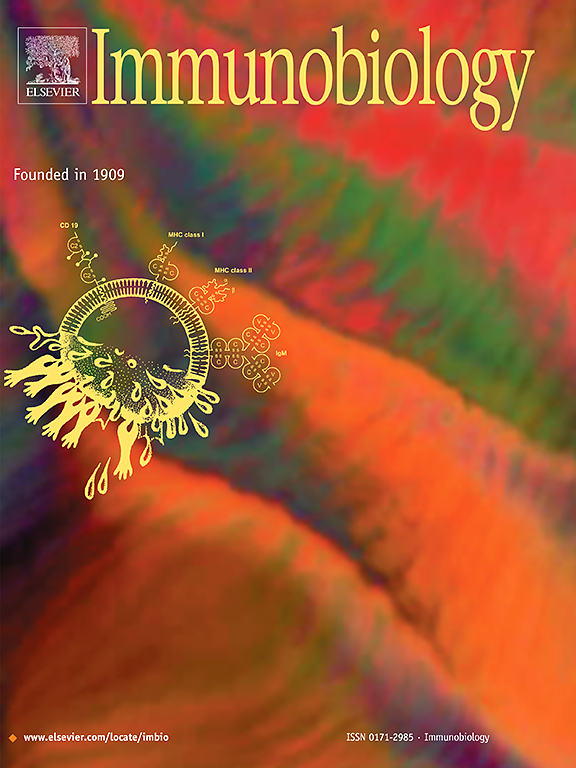系统性红斑狼疮作为理解自身免疫性疾病中复杂免疫关系和靶向补体治疗机会的范例
IF 2.3
4区 医学
Q3 IMMUNOLOGY
引用次数: 0
摘要
补体疗法已越来越多地用于人类疾病的试验和批准,通常用于具有强烈和明显因果遗传联系或突变相关特征的孤儿疾病。然而,补体系统已被证明在几乎所有的人类炎症、缺血性和自身免疫性疾病中都被激活,这表明补体系统有更广泛的治疗应用的可能性。本文的目的是回顾一些支持补体在自身免疫性疾病的特异性治疗中广泛作用的证据,特别是最近在自身抗体驱动的疾病中的批准为其他这些适应症打开了大门。然而,部分由于缺乏临床试验期间获得的补体生物标志物数据,尚不清楚哪些发现将有助于预测其他自身免疫性疾病的治疗成功。为了构建讨论框架,有必要指出,系统性红斑狼疮(SLE)是研究最广泛的自身免疫性疾病之一,涉及补体系统的各种作用,并且有可用的人类表型研究和小鼠模型数据。由于这一历史,本文将重点讨论SLE,补体在SLE中的许多作用将被回顾,并与其他自身免疫性疾病进行信息比较。总的来说,实验和表型数据表明,每一种人类自身免疫性疾病都值得仔细关注,针对最相关的补体转化酶或成分的特异性补体抑制剂可能会有益,因此治疗方法应该使用信息性生物标志物驱动的临床试验策略进行测试。本文章由计算机程序翻译,如有差异,请以英文原文为准。
Systemic lupus erythematosus as the paradigm for understanding the complex immune relationships and therapeutic opportunities for targeting complement in autoimmune diseases
Complement therapeutics have been increasingly tested and approved for human diseases, often in orphan diseases with strong and apparently causal genetic linkage or mutation-associated features. However, the complement system has been demonstrated to be activated in essentially all human inflammatory, ischemic and autoimmune diseases, suggesting the possibility of even wider therapeutic applications. The goal of this manuscript is to review some of the evidence supporting a wide role for complement in the specific treatment of autoimmune diseases, especially as recent approvals in autoantibody-driven diseases are opening the door to others of these indications. However, in part because of a dearth of complement biomarker data obtained during clinical trials, it is not known what findings would help to predict therapeutic success in other autoimmune diseases. To frame the discussion, it is relevant to point out that the disease systemic lupus erythematosus (SLE) has been among the most extensively studied autoimmune disease with regards to the varied roles of the complement system, and there are available both human phenotypic studies and murine model data. Because of that history, SLE will be focused upon herein, the many roles of complement in SLE will be reviewed, and informative comparisons to other autoimmune diseases will be made. In aggregate, experimental and phenotypic data suggest that each human autoimmune disease deserves careful attention to the possibility that a specific complement inhibitor targeting the most relevant complement convertase or component will be of benefit, and thus therapeutic approaches should be tested using informative biomarker-driven clinical trial strategies.
求助全文
通过发布文献求助,成功后即可免费获取论文全文。
去求助
来源期刊

Immunobiology
医学-免疫学
CiteScore
5.00
自引率
3.60%
发文量
108
审稿时长
55 days
期刊介绍:
Immunobiology is a peer-reviewed journal that publishes highly innovative research approaches for a wide range of immunological subjects, including
• Innate Immunity,
• Adaptive Immunity,
• Complement Biology,
• Macrophage and Dendritic Cell Biology,
• Parasite Immunology,
• Tumour Immunology,
• Clinical Immunology,
• Immunogenetics,
• Immunotherapy and
• Immunopathology of infectious, allergic and autoimmune disease.
 求助内容:
求助内容: 应助结果提醒方式:
应助结果提醒方式:


